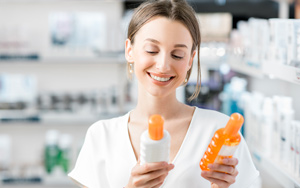 Self-care is any activity that we do deliberately in order to take care of our mental, emotional, and physical health. The idea of self-care has been around for decades, first in the medical community, then activist communities, and now it’s permeated pop culture. Millennials in particular have popularized, and even commercialized, the concept of self-care, applying it to everything from a yoga class to retail therapy.
Self-care is any activity that we do deliberately in order to take care of our mental, emotional, and physical health. The idea of self-care has been around for decades, first in the medical community, then activist communities, and now it’s permeated pop culture. Millennials in particular have popularized, and even commercialized, the concept of self-care, applying it to everything from a yoga class to retail therapy.
According to Market Watch, “the average American spends $199 a month — 22 percent of their disposable income, or about $2,388 a year — on non-essential items to ‘treat themselves.’” Those younger than 25 spend as much as 33 percent of their disposable income on luxury experience or material items. 62 percent of people want to treat themselves more than they currently do.
Naturally, brands have picked up on this trend and are marketing self-care products and experiences of all shapes and sizes. Lululemon, a popular fitness and athleisure clothing brand, launched a self-care line earlier this year full of post-workout skincare and beauty products.
A self-care line seems like a natural product extension for Lululemon. However, there are plenty of unexpected retailers entering the self-care space. Earlier this spring, Ikea launched a self-care collection full of beachy-themed furniture and decor.
This $11 billion dollar U.S. self-care industry shows no signs of slowing down. Consumers may be wary of a furniture line marketed as self-care, but there’s no denying that shoppers are willing and eager to treat themselves. What does the self-care industry mean for independent retailers? Just like the practice of self-care, it will look a little bit different for everyone.
Here are tips for using self-care to drive sales in your store:
Self-care starts from within.
Ikea’s self-care line seems inauthentic because there is no background or context to it. In order genuinely promote healthy and self care lifestyles, you should start by making selfcare a priority in your own life, and for your employees to do the same. Finding what helps you and your team take the best care of yourselves is a good place to start when wanting to share self-care products and practices with customers.
It looks different for everyone.
Self-care products can be just about anything that encourages health or wellness mentally, physically, or spiritually. Some people use skincare regimens as self-care, others use yoga or workouts, some people use healthy cooking as self-care. So, there is no right or wrong answer to what you store’s self-care products or section looks like as long as it’s encouraging healthy behaviors or practices.
Selfcare is often experiences rather than things.
Though Lululemon just rolled out their official self-care line this year, they have been offering self-care experiences for years through in-store yoga classes. When incorporating self-care into your sales strategy, be sure to plan events focusing around your self-care products. For example, if you are using skincare or beauty products, host tutorial events or offer free product applications. If you are promoting healthy cooking, host after-hours cooking classes or tasting parties.
